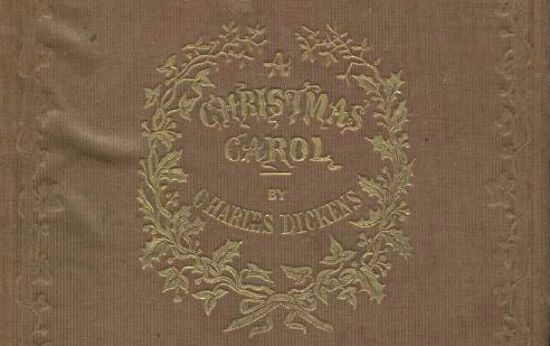I posted a story this morning from the Gospel of Luke that isn’t included in any of the lectionary readings for the Advent or Christmas seasons. For Christian churches, the story of Zacchaeus is not a Christmas story.
For the rest of the world, though, it’s one of the best Christmas stories there is. It’s a version of what seems to be one of everyone’s favorite Christmas stories. Here’s the ending of that story from Luke 19:
Zacchaeus stood there and said to the Lord, “Look, half of my possessions, Lord, I will give to the poor; and if I have defrauded anyone of anything, I will pay back four times as much.”
Then Jesus said to him, “Today salvation has come to this house, because he too is a son of Abraham. For the Son of Man came to seek out and to save the lost.”
And here’s the ending of the more popular version of it that we recite and replay and re-enact every year around this time:
“A merry Christmas, Bob!” said Scrooge, with an earnestness that could not be mistaken, as he clapped him on the back. “A merrier Christmas, Bob, my good fellow, than I have given you, for many a year! I’ll raise your salary, and endeavor to assist your struggling family, and we will discuss your affairs this very afternoon, over a Christmas bowl of smoking bishop, Bob! Make up the fires, and buy another coal-scuttle before you dot another i, Bob Cratchit!”
Scrooge was better than his word. He did it all, and infinitely more; and to Tiny Tim, who did not die, he was a second father. He became as good a friend, as good a master, and as good a man, as the good old city knew, or any other good old city, town, or borough, in the good old world. …
He had no further intercourse with Spirits … and it was always said of him, that he knew how to keep Christmas well, if any man alive possessed the knowledge. May that be truly said of us, and all of us! And so, as Tiny Tim observed, God bless Us, Every One!
Pretty much the same ending. Pretty much the same story, give or take a few ghosts.

Luke’s Gospel, as usual, emphasizes justice and reparations. Charles Dickens, as usual, emphasizes charity and benevolent wealth. Those two ideas are often far apart, but as George Orwell wrote, they’re not as far apart in Dickens as they usually seem:
It seems that in every attack Dickens makes upon society he is always pointing to a change of spirit rather than a change of structure. It is hopeless to try and pin him down to any definite remedy, still more to any political doctrine. His approach is always along the moral plane, and his attitude is sufficiently summed up in that remark about Strong’s school being as different from Creakle’s “as good is from evil.” Two things can be very much alike and yet abysmally different. Heaven and Hell are in the same place. Useless to change institutions without a “change of heart” — that, essentially, is what he is always saying.
If that were all, he might be no more than a cheer-up writer, a reactionary humbug. A “change of heart” is in fact the alibi of people who do not wish to endanger the status quo. But Dickens is not a humbug, except in minor matters, and the strongest single impression one carries away from his books is that of a hatred of tyranny. I said earlier that Dickens is not in the accepted sense a revolutionary writer. But it is not at all certain that a merely moral criticism of society may not be just as ‘revolutionary’ … Two viewpoints are always tenable. The one, how can you improve human nature until you have changed the system? The other, what is the use of changing the system before you have improved human nature? … The central problem — how to prevent power from being abused — remains unsolved. Dickens, who had not the vision to see that private property is an obstructive nuisance, had the vision to see that. “If men would behave decently the world would be decent” is not such a platitude as it sounds.
The story of Zacchaeus, I think, includes the “merely moral criticism” we find in Dickens, but it also includes more than that. Zacchaeus’ salvation isn’t based solely on his “change of heart,” but upon his restitution to those he has been defrauding. (This is another story you’ll never hear when American white evangelicals are discussing soteriology.)
In Luke’s Gospel, Jesus never returns to Jericho, so the narrative never returns to Zacchaeus. I like to think that his change of heart and his change of course endured — that he became “as good a friend and as good a man as the good old city knew.”
Zacchaeus, of course, was a first-century son of Abraham. He never would have heard of Christmas, let alone have had it ever said of him that he knew how to keep it well. Yet I think that his transformation — as sudden and wonderful as Ebenezer Scrooge’s — set him on a path toward becoming exactly the kind of person that Dickens was trying to describe with that phrase.












